Meet the ATA 2013 Spring Meeting Faculty
“Hypothyroidism is one of the most commonly diagnosed conditions, affecting 5-10% of all people. The American Thyroid Association’s spring symposium, devoted to the treatment of hypothyroidism, highlights what we know and what we do not know about treating this common ailment. My lecture, the “Goals of Therapy and Hypothyroidism” will review what we hope thyroid hormone replacement therapy will achieve: reversal of patients’ symptoms, and normalization of laboratory indices of thyroid hormone action. It is also important to realize that thyroid hormone therapy may not achieve everything that patients desire.
This session will help primary care providers align the expected results of thyroid hormone treatment for hypothyroidism with what are often unrealistic patient expectations of improved health outcomes and well-being.“- David Cooper, MD
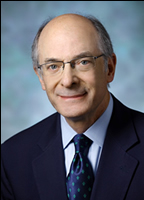 Dr. David Cooper will be the speaker of “Goals of Therapy and Hypothyroidism” during the Spring Symposium on Friday, April 26, 2013. Dr. Cooper received his medical degree from Tufts University School of Medicine, and completed his Endocrinology Fellowship training at the Massachusetts General Hospital/Harvard Medical School. He is Professor of Medicine and Radiology at the Johns Hopkins University School of Medicine, and Director of the Johns Hopkins Thyroid Clinic. He serves as Editor-in-Chief for Endocrinology at Up-to-Date. He is a former Contributing Editor at JAMA, and the past Chair of the Subspecialty Board for Endocrinology, Diabetes, and Metabolism of the American Board of Internal Medicine. Dr. Cooper is the past Treasurer and the past President the American Thyroid Association, and is also the recipient of the American Thyroid Association’s Distinguished Service Award and its Paul Starr Award. He is also the recipient of the Distinction in Clinical Endocrinology Award from the American College of Endocrinology.
Dr. David Cooper will be the speaker of “Goals of Therapy and Hypothyroidism” during the Spring Symposium on Friday, April 26, 2013. Dr. Cooper received his medical degree from Tufts University School of Medicine, and completed his Endocrinology Fellowship training at the Massachusetts General Hospital/Harvard Medical School. He is Professor of Medicine and Radiology at the Johns Hopkins University School of Medicine, and Director of the Johns Hopkins Thyroid Clinic. He serves as Editor-in-Chief for Endocrinology at Up-to-Date. He is a former Contributing Editor at JAMA, and the past Chair of the Subspecialty Board for Endocrinology, Diabetes, and Metabolism of the American Board of Internal Medicine. Dr. Cooper is the past Treasurer and the past President the American Thyroid Association, and is also the recipient of the American Thyroid Association’s Distinguished Service Award and its Paul Starr Award. He is also the recipient of the Distinction in Clinical Endocrinology Award from the American College of Endocrinology.
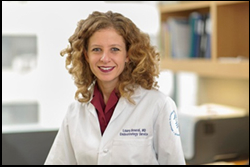 Dr. Laura Boucai will be the speaker of “Thyroid Hormone Therapy in Special Circumstances: Elderly” during the Spring Symposium on Friday, April 26, 2013. Dr. Laura Boucai is a board-certified endocrinologist and internist with particular interest in thyroid diseases. She is currently an Assistant Professor of Medicine at Weill Cornell Medical College, and an Assistant Attending Physician at Memorial Sloan Kettering Cancer Center. As part of her academic career, she has spent four years as a faculty member at the Albert Einstein College of Medicine where she has worked with Dr. Martin Surks to better understand which factors have an impact in the thyrotropin (TSH) distribution. They found that age and race are independent determinants of the TSH level in healthy individuals, and that the availability of age-and race-specific reference limits for TSH would decrease misclassification of patients without thyroid disease. Furthermore, they propose that these TSH changes with age and race might have a genetic basis. At the American Thyroid Association Spring Symposium and Research Summit 2013 on Treatment of Hypothyroidism, I will present the results of our findings and propose a new diagnostic paradigm that will hopefully result in better care of a growing geriatric population.
Dr. Laura Boucai will be the speaker of “Thyroid Hormone Therapy in Special Circumstances: Elderly” during the Spring Symposium on Friday, April 26, 2013. Dr. Laura Boucai is a board-certified endocrinologist and internist with particular interest in thyroid diseases. She is currently an Assistant Professor of Medicine at Weill Cornell Medical College, and an Assistant Attending Physician at Memorial Sloan Kettering Cancer Center. As part of her academic career, she has spent four years as a faculty member at the Albert Einstein College of Medicine where she has worked with Dr. Martin Surks to better understand which factors have an impact in the thyrotropin (TSH) distribution. They found that age and race are independent determinants of the TSH level in healthy individuals, and that the availability of age-and race-specific reference limits for TSH would decrease misclassification of patients without thyroid disease. Furthermore, they propose that these TSH changes with age and race might have a genetic basis. At the American Thyroid Association Spring Symposium and Research Summit 2013 on Treatment of Hypothyroidism, I will present the results of our findings and propose a new diagnostic paradigm that will hopefully result in better care of a growing geriatric population.
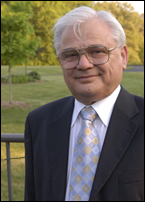 Senior Scientist in the Department of Laboratory Medicine at the National Institutes of Health, Dr. Steven Soldin, will be the speaker of “Methods for Measuring Circulating T3” during the Spring Symposium on Thursday, April 25, 2013.
Senior Scientist in the Department of Laboratory Medicine at the National Institutes of Health, Dr. Steven Soldin, will be the speaker of “Methods for Measuring Circulating T3” during the Spring Symposium on Thursday, April 25, 2013.
“This talk will challenge the myth that all is well with thyroid hormone measurement by immunoassays. Advantages of mass spectrometric measurement may permit important conceptual changes. For example, does the entity of subclinical hypothyroidism as currently defined really exist? Special attention will be placed on the reliable measurement of T3, rT3 and FT3. When should endocrinologists consider ordering T4,T3,FT4,FT3 by mass spectrometry. You should anticipate a free for all robust discussion at conclusion.”- Steven Soldin, PhD
Dr. Steven J Soldin received his Master’s Degree in Chemistry (1965) and his PhD degree in Biochemistry (1968) from the University of the Witwatersrand in Johannesburg , South Africa. He lectured at the University of the Witwatersrand Medical School in the Department of Physiological Chemistry from 1968-71 and underwent postdoctoral training in the Biochemistry Department at the University of Toronto in 1972. In October 2011 he accepted the position of Senior Scientist in the Department of Laboratory Medicine in the Clinical Center at NIH. He currently oversees the mass spectrometry section of the clinical chemistry service and research programs and is also involved in the routine laboratory and postdoctoral training of PhD and MD clinical chemistry fellows. His research interests focus on improving current diagnostic and therapeutic tests in clinical chemistry which include the measurement of steroid and thyroid hormone profiles by tandem mass spectrometry. New foci will include measurement of a free hormone profile and evaluation of this profile in various cancers. Also measurement of bioactive peptides such as Neuropeptide Y and evaluation of the role of NPY in cardiovascular diseases and oncology.
 Dr. Rosalind Brown will be presenting the “Thyroid Hormone Therapy in Special Circumstances: Pediatrics” during the Spring Symposium on Friday, April 26, 2013.
Dr. Rosalind Brown will be presenting the “Thyroid Hormone Therapy in Special Circumstances: Pediatrics” during the Spring Symposium on Friday, April 26, 2013.
“Thyroid hormone replacement of hypothyroid infants and children presents unique challenges. Not only do the causes and consequences of thyroid hormone deficiency differ depending on the age of the child, but normal values and dosing varies as well. In this session, you will be updated about current concepts in treating infants with congenital hypothyroidism, including special circumstances when treatment with T3 might be indicated. The controversy surrounding whether or not to treat sick hypothyroxinemic premature infants will be addressed and treatment of subclinical and overt hypothyroidism in older children and adolescents will be reviewed.”- Rosalind S. Brown, MD
Dr. Brown is the Director of Clinical Trials Research in the Division of Endocrinology at Children’s Hospital Boston and Harvard Medical School. She was formerly the Director of the Division of Pediatric Endocrinology & Diabetes, and Professor of Pediatrics at the University of Massachusetts Medical School. She completed her pediatric residency at the Montreal Children’s Hospital including a year as chief resident and trained in endocrinology both in Montreal and in Boston. Dr. Brown is involved in clinical practice, teaching and research with a focus on congenital hypothyroidism and the role TSH receptor antibodies in disease. She is an editor of 3 textbooks on Pediatric Endocrinology, has written >85 original articles, invited editorials, reviews and book chapters and served on numerous Editorial Boards. She is a former chair, Sub Board of Pediatric Endocrinology, American Board of Pediatrics.
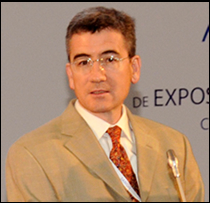 Dr. Douglas Forrest will speak about “The regulation of T3 in brain development” at the ATA Spring Summit on Thursday April 25th, 2013. “A concern about hypothyroidism in development is the well-known risk of neurodevelopmental impairment in the offspring. What is less clearly understood is how thyroid hormone promotes neurodevelopment. I will discuss key functions of thyroid hormone receptors and the role of deiodinase enzymes in activating or inactivating thyroid hormone during neurodevelopment.” – Douglas Forrest, PhD Dr. Forrest received his PhD from Glasgow University and is currently Senior Investigator and Section Chief at the Laboratory of Endocrinology and Receptor Biology at NIDDK at the National Institutes of Health. He was previously Associate Professor of Human Genetics at Mount Sinai School of Medicine. He is the recipient of the Merck Prize of the European Thyroid Association, the Outstanding Faculty Achievement Award in Basic Science at Mount Sinai School of Medicine and the Van Meter Award of the American Thyroid Association. He was co-chair with Elizabeth Pearce, MD, of the 82nd Annual Meeting of the American Thyroid Association in Quebec City.
Dr. Douglas Forrest will speak about “The regulation of T3 in brain development” at the ATA Spring Summit on Thursday April 25th, 2013. “A concern about hypothyroidism in development is the well-known risk of neurodevelopmental impairment in the offspring. What is less clearly understood is how thyroid hormone promotes neurodevelopment. I will discuss key functions of thyroid hormone receptors and the role of deiodinase enzymes in activating or inactivating thyroid hormone during neurodevelopment.” – Douglas Forrest, PhD Dr. Forrest received his PhD from Glasgow University and is currently Senior Investigator and Section Chief at the Laboratory of Endocrinology and Receptor Biology at NIDDK at the National Institutes of Health. He was previously Associate Professor of Human Genetics at Mount Sinai School of Medicine. He is the recipient of the Merck Prize of the European Thyroid Association, the Outstanding Faculty Achievement Award in Basic Science at Mount Sinai School of Medicine and the Van Meter Award of the American Thyroid Association. He was co-chair with Elizabeth Pearce, MD, of the 82nd Annual Meeting of the American Thyroid Association in Quebec City.
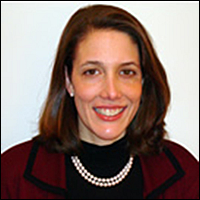
Dr. Anne Cappola will be the speaker of “Dietary Supplements and Nutraceuticals” during the Spring Symposium on Friday, April 26, 2013.Anne Cappola, MD, ScM is Associate Professor of Medicine at the Perelman School of Medicine at the University of Pennsylvania. Dr. Cappola is a graduate of Harvard College and the University of Pennsylvania School of Medicine. She was a resident in Medicine at the Brigham and Women’s Hospital and a fellow in Endocrinology at the Massachusetts General Hospital and at the Johns Hopkins Hospital. She has also completed a Master of Science in Clinical Epidemiology and a fellowship in the Epidemiology of Aging at the Johns Hopkins Bloomberg School of Public Health. Dr. Cappola directs an NIH-funded research program on the hormonal alterations that occur with aging and the clinical impact of these changes, including the clinical impact of subclinical thyroid dysfunction in older individuals. She is a Contributing Editor for JAMA. She currently serves on the ATA’s Annual Meeting Program Committee and Thyroid Hormone Replacement Task Force.
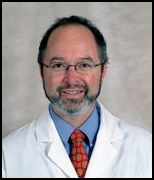 “The session on thyroid and pregnancy will provide an up to date overview of the quickly evolving literature on thyroid and pregnancy. Particular focus will be placed on ongoing controversies such as treating subclinical hypothyroidism and whether or not all pregnant women should be screened for thyroid disease.” Alex Stagnaro-Green, MD
“The session on thyroid and pregnancy will provide an up to date overview of the quickly evolving literature on thyroid and pregnancy. Particular focus will be placed on ongoing controversies such as treating subclinical hypothyroidism and whether or not all pregnant women should be screened for thyroid disease.” Alex Stagnaro-Green, MD
Dr. Stagnaro-Green will be the speaker of “Thyroid Hormone Therapy in Special Circumstances: Pregnancy” during the Spring Symposium on Friday, April 26, 2013. He is senior associate dean for education at the George Washington University School of Medicine and Health Sciences where he is Professor of Medicine and Professor of Obstetrics and Gynecology. In 1990, Dr. Stagnaro-Green reported in JAMA the seminal finding linking thyroid antibody positivity in euthyroid women to a doubling of the rate of spontaneous miscarriage. His research focuses on thyroid antibodies and miscarriage, the relationship between thyroid dysfunction and preterm delivery, and postpartum thyroiditis. He presently chairs the American Thyroid Association (ATA) Task Force on Thyroid and Pregnancy and led the ATA initiative which developed clinical guidelines for thyroid disease in pregnant women.



